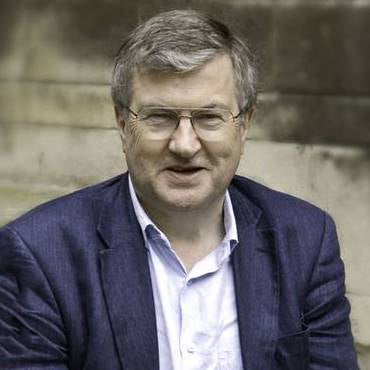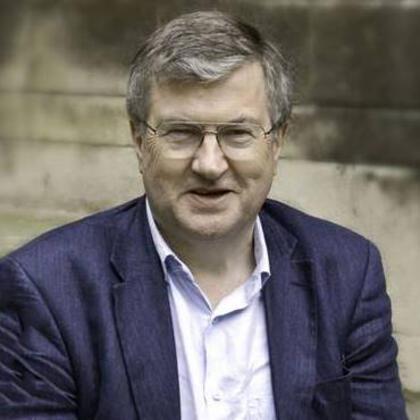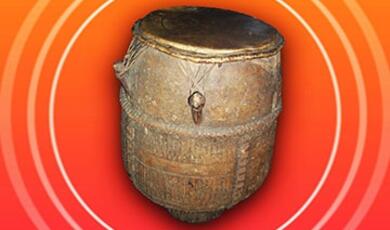War and Peace in Europe from Napoleon to the Kaiser: The Crimean War, 1854-1856
Share
- Details
- Text
- Audio
- Downloads
- Extra Reading
The Crimean War is remembered in Britain mainly for its military incompetence and for the pioneering nursing activities of Florence Nightingale. In a wider European context, however, it was the first major international conflict since 1815, and inaugurated a decade and a half of upheaval. This lecture examines how military tactics and methods had changed since 1815 and explores the war's dramatic consequences on a broader level.
This is part of the series of lectures, War and Peace in Europe from Napoleon to the Kaiser, which looks at the conflicts that tore Europe apart at various times during the 19th century. It examines the origins, course and impact of six wars, or international conflicts, looking not just at their military aspects but also at how soldiers and civilians experienced them, the ideological influences that underlay them, and the social and cultural changes to which they gave rise.
Download Text
The Crimean War
Professor Richard J Evans FBA, Gresham Professor of Rhetoric
Napoleon III of France has some claim to be the first modern dictator. Elected President of the revolutionary Second French Republic by an alarmed, mainly middle-class electorate in December 1848, he staged a dramatic coup d'état three years later, removing the democratic institutions of the Republic and replacing them with an authoritarian system of governance. His troops moved into Paris, breaking down the hastily-build barricades of the Republicans, and killing around 500 people, many of them bystanders. The coup was followed by violent resistance in central and southern France, put down by the army with considerable brutality; 27,000 alleged Republican activists were arrested; nearly 10,000 of them were transported to Algeria or Cayenne, and 4,500 were sent into exile. Soon stringent curbs were imposed on press freedom, and in December 1852 a pliant Senate declared him Emperor.
Why was he a modern dictator? The fundamental reason is that he realized that his legitimacy depended on popular support. Thus the coup and later the Senate resolution declaring him Emperor were both put to a national vote. Others followed on other issues. This was a plebiscitary dictatorship. Behind the scenes, Napoleon III managed and manipulated elections and plebiscites by a mixture of bribery and intimidation in order to get the right result, whether a yes vote for his policies, or an obliging, pro-government majority in the legislature. But more was needed than the suppression of opposition and the manufacture of the appearance of consent. Real popularity was required as well.
Napoleon III sought popularity especially among the middle classes partly by guaranteeing order and stability, warding off the threat of revolutionary violence that had been so terrifying in 1848, and partly by providing the conditions for rapid economic growth, industrialization, prosperity and trade - for example through a commercial treaty with Britain. More generally, however, he felt he had an important myth to live up to - the myth of his uncle, the great Napoleon I. He had made liberal use of this myth in gaining support: the restoration of French glory and prestige was part of his mission, after the prosaic years of the July Monarchy. This suddenly made France an unpredictable and destabilizing factor in European politics. For the last time, indeed, the French were attempting to regain the position of European hegemony they had enjoyed from Louis XIV to the first Napoleon.
There were other reasons too why Napoleon III was determined to cut a dashing figure in Europe. 'Serious plots are afoot in the army', he wrote privately towards the end of 1852: 'I am keeping my eye on all this, and I reckon that by one means or another, I can prevent any outbreak: perhaps by means of a war.' Giving the army, on which he had depended completely for his seizure of power, a war with which to occupy it, would stop it from engaging in any treasonous activities. In addition, Napoleon also relied heavily for the generation and maintenance of internal political support on the French Catholic church, which perhaps more than any other institution had seen itself threatened by the revolutionary outbreak of 1848. An opportunity soon presented itself.
For much of the 19th century, there had been a simmering conflict between Russia and the Ottoman Empire. Russia desired to expand its influence in the Balkans and to gain a warm-water port in the Mediterranean. The increasingly rickety Ottoman Empire, dubbed by Tsar Nicholas I "the sick man of Europe", still controlled much of the region, as well as the Middle East. Nicholas I was well aware, of course, of the dangers of pushing too far or too fast; the last thing he wanted was the Ottoman Empire to disappear altogether; paradoxically, perhaps, in view of his actions, he saw it as a bulwark of stability in the region and was willing on occasion to prop it up. His solution to the dilemma was to try to assert Russian influence over the Empire. Correspondingly, he tried to stop other powers from doing the same thing.
In 1852 Napoleon III sought to win Catholic support by backing the claim of Catholic monks to a small area of the floor in the Church of the Holy Sepulchre in Jerusalem on which Orthodox monks has encroached over the previous few years when nobody had been paying much attention. Nicholas backed the Orthodox monks; and the issue quickly became a symbol of the rival ambitions of the two powers in the Middle East, where Napoleon was keen to clear the way for the construction of a canal across the isthmus of Suez, still nominally under Ottoman control. The Ottoman Sultan, faced with these rival claims, naturally dithered; and in the summer of 1853, losing patience with him, Nicholas invaded the two Ottoman Danubian principalities of Moldavia and Wallachia, later to join together to form the modern state of Romania. The Russian navy destroyed the Ottoman fleet at the battle of Sinope, and the British, concerned about the growth of Russian naval power in the Mediterranean and the potential threat to the route to India and indeed in the long run India itself, as well as being alarmed about what seemed to be an upset of the balance of power through Russian intervention in Austria-Hungary in 1848-9, joined the French in sending a naval expedition to the Black Sea. Nicholas was not intimidated, and on 30 March 1854, Britain and France joined the Turkish side by declaring was on Russia.
Fearing a land invasion, and mistrusting the Austrians, Nicholas withdrew his troops from the Danubian principalities in order to deploy them in defensive positions elsewhere. The Austrians duly moved in jointly with the Ottoman forces, enraging Nicholas by what he saw as their ingratitude after he had saved them a few years before. Meanwhile there were military actions between the British and French on the one hand, and the Russians on the other, in the Baltic and the Pacific coast at Kamchatka, while the Russians advanced across Ottoman territory in the Caucasus. None of these was particularly important, still less decisive, but they did tie up large numbers of Russian troops - 200,000 in the Baltic alone, for example - and so prevented Nicholas I from concentrating his forces at the main point of attack.
Napoleon above all was aware of the fatal consequences of staging a full-scale land invasion of Russia, in view of his uncle's disastrous experience in 1812. So together with the British, he decided on an invasion of the Crimea, where their troops could easily be supplied by sea instead of having to cover vast distances over land. A joint expeditionary force set up its headquarters at Varna, on the Bulgarian coast, and then landed in the Crimea, where 35,000 of them defeated a Russian force of 57,000 at the Battle of the Alma, threatening the Crimean city of Sevastopol. The Russians strengthened its fortifications and launched a counter-attack at Balaklava, the scene of the famous charge of the Light Brigade, when British cavalry, misled by a wrongly transmitted and misunderstood order, charged the wrong way, into a furious Russian cannonade. As the French general present observing the event noted, 'c'est magnifique, mais ce n'est pas la guerre'.
By this time the Russians had called up more than 100,000 reserves, but at the confused Battle of Inkerman they failed to use them against an inferior Allied force, which was thus able to beat back the Russian attack. After this, the war settled down into a prolonged siege of Sevastopol. The incompetence of the British leadership quickly became notorious. The commanding general, Lord Raglan, who had lost an arm at the Battle of Waterloo, kept on referring to the enemy as 'the French', much to the annoyance of the French officers with whom he was supposed to be working. The mostly aristocratic officers paid more attention to discipline than to fighting. An extreme though in essence far from untypical example was that of Lord Cardigan, who led the fatal Charge of the Light Brigade. A wealthy man, he had purchased the command of the 11thHussars in 1835 for the vast sum of £40,000 - the purchase of commissions was how posts were filled in the British army - and soon transformed the regiment into the famous 'cherry-pickers', turned out smartly in tight-fitting maroon-coloured uniforms. An enthusiastic duelist, Cardigan had added to his notoriety by persecuting a middle-class officer, Captain John Reynolds, whom he accused of ordering porter instead of champagne for a regimental dinner. He was married to the sister of his commanding officer Lord Lucan but the marriage had ended in 1844 in a dispute that turned the men's friendship into mortal enmity (later, appropriately enough for a cavalry officer, he married Lady Horsey de Horsey). 'Two bigger fools could not be pulled out of the British army', noted a captain in his diary. Neither had experience of command in battle. Their incompetence and mutual hatred played a fatal role in the misunderstandings that led to the disastrous Charge of the Light Brigade.
Conditions among the troops deteriorated sharply, and lack of proper hygiene and sanitation led to disease and death. The British military hospital at Scutari was soon overcrowded with the sick, the wounded and the dying all crammed together in filthy conditions. The London Timesbegan a campaign to improve the situation, spurred on by its local correspondent Thomas Chenery, who wrote: 'The worn-out pensioners who were brought out as an ambulance corps are totally useless, and not only are surgeons not to be had, but there are no dressers or nurses to carry out the surgeons' directions...Here the French are greatly our superiors. Their medical arrangements are extremely good, their surgeons are numerous, and they also have the help of...excellent nurses.' Matters became worse when cholera broke out, brought with the troops from France. As in all other wars of the time, and long before, more soldiers died from disease than from enemy fire, a point noted by the English nurse Florence Nightingale, whose achievements in improving medical care and treatment are well known, but whose role in developing medical statistics and their presentation has perhaps received less attention than it deserves. Altogether on all sides, 500,000 out of the 600,000 men who died in the war died of disease; 22 per cent of the British, 30 per cent of the French, and 50 per cent of the Russian troops.
If the Anglo-French conduct of the war was incompetent, however, the Russian conduct of the war was even more so. Cholera and other diseases were rife in Sebastopol and the Russian encampments, and here too there was eventually a real effort, led by the Grand Duchess Elena Pavlovna, to establish a modern nursing service and improve hygiene and nursing care. Russian military command was no better than the French or British. Afraid of an invasion by the Austrians, who signed an alliance with the British and the French in December 1854, the elderly and indecisive Russian commander in chief, Paskevich, persistently prevented the sending of further reinforcements to the Crimea, and so was unable to relieve Sevastopol, on which the Allies had launched a poorly co-ordinated attack on the Malakov redoubt in June 1855, in which one of the French generals mistook an explosion for the signal to start the assault, and so sent his troops in before the main force was ready.
The Russian Black Sea fleet, for example, had easily defeated the Ottoman navy, but its ships were mostly made of softwood from Russia's vast coniferous forests and were unseaworthy, they were poorly armed, they had very few steam-driven ships, and their crews were badly trained. As soon as the French and British navies arrived on the scene, the Russians were clearly outsailed and outgunned.
Russian troops still had flintlock muskets with a range of 200 yards, compared to that of 1,000 yards covered by Allied rifles. The Russian cavalrymen were mostly mounted on parade-ground horses that found it difficult to withstand the rigours of campaigning and were woefully slow at the charge. Their swords were blunt and easily broken, no match for the industrially produced Sheffield steel of their British counterparts, which could slice through enemy greatcoats with ease, while the Russian swords simply bounced off them.
Russian troops were drafted for 25 years from the serf population - indeed, if you were conscripted, you were in effect considered legally dead, and your wife was allowed to remarry - so that many of them were in their forties, and there was no proper reserve army; 400,000 of the new recruits drafted during the war had received no training because there were no officers available to train them. Similarly, many of the officers were middle-aged or elderly, over-cautious and uninspired. General Todleben, the engineer who organized the construction of Sevastopol's defences, was the great exception to this rule.
Since there were no railways south of Moscow, it took up to three months for troops from central and northern Russia to reach the Crimea. And when they got there, they encountered a calamitous shortage of supplies, partly because of difficulties in getting them there, partly because the absence of industrial plant in Russia meant manufacture was so slow that by the end of 1855 there were only 90,000 guns and just over 250 field artillery pieces left in the stockpile of weapons, while the British and French were constantly replenishing their equipment by sea. Above all, perhaps, the Russian state was unable to finance the war effort, so that at the beginning of 1856, the State Council issued a warning to the Tsar that state bankruptcy was likely unless he called a halt to the conflict. 'We are both weaker and poorer than the first-class powers', admitted the Grand Duke Konstantin Nikolaevich, 'and furthermore poorer not only in material but also in mental resources, especially in matters of administration'.
Helped by the death of Tsar Nicholas I on 2 March 1855 and the appointment of Palmerston as British Prime Minister on 6 February, negotiations to end the war had already begun, and after a relief attempt on Sevastopol had been beaten back in August 1855 with the loss of 10,000 men on the Russian side, a final Allied assault forced the Russians out, at the cost of another 13,000 Russian and 11,000 Allied casualties. Realizing the inevitable, and strengthened by further victories in the Caucasus, the Russians now negotiated in earnest, and a peace treaty was signed in April 1856. It neutralized the Black Sea, preventing Russia from stationing warships there, and gave independence to the Danubian principalities, which soon united to form Romania along with southern Bessarabia, which the Treaty removed from Russia, to which it had belonged since 1812.
The Crimean War was notable in the first place because it was very limited in geographical scope, it involved a very small proportion of the forces available to the belligerent powers, and it was fought for strictly limited aims. In a sense, it was a kind of old-fashioned cabinet war; no attempt was made to rouse the inhabitants of, say, Turkish-held Bulgaria against the Ottomans, or the Slavs of the Habsburg Monarchy against their rulers following the Austrian invasion of the Danubian principalities. No state wanted to revive the spectre of revolution anywhere. No state, neither Tsarist Russia nor Ottoman Turkey, was threatened with destruction.
The war was old-fashioned in another sense too. It was not only the generals, or some of them, who were leftovers from the Battle of Waterloo. The battles were still fought between gaudily-uniformed masses of troops, firing rifle volleys, attacking the enemy on foot, or engaging in cavalry charges that were little different from those of half a century before. Barbed wire was not invented until 1867; the machine gun was not invented until 1884, though the hand-turned Gatling gun, first used in 1861, was an important precursor. Artillery had developed relatively little since the beginning of the century. All of this would change in due course. But it's a reminder that the nature of weapons technology and fighting methods was one of the reasons for the relative lack of destructiveness of 19th-century warfare.
If the results of the Crimean War were very limited in terms of direct outcome, then the broader effects of the Russian defeat on international politics in Europe were more profound. Russia was beaten back to the margins from the central position it had taken in European politics in 1815, though it did not abandon its ambitions to acquire a warm-water port in the Mediterranean. France re-entered European politics, its power and prestige greatly enhanced. The Ottoman Empire survived more or less intact, with the loss of the Danubian principalities. The threat of Russian hegemony in Istanbul had been warded off. Nevertheless, the Sultan had to confirm in an official firman the rights of the Christians in his realms, and in particular in Jerusalem. And it had become clear that the Empire's institutions were in need of reform. As the tough-talking British Ambassador, Stratford Canning, told the Sultan: 'Your present administrative system...is leading you only to destruction. It is antisocial: that of self, opposed to public interests.' The Empire, he said, had to encourage economic development, increase tax revenue and root out corruption. Sultan Abdulaziz and his successor Abdulhamid realized the need for reform, but were unable to meet it. Before long, the Ottoman Empire was the sick man of Europe again, defaulting on its debts and prey to Russian aggression when it resumed two decades later.
The inadequacies of the respective performances of the various armies led to far-reaching reforms in military organization and supply both in Russia and the United Kingdom. In Britain the absence of a system of conscription meant the army was relatively small and had few reserves. Public disquiet at the conduct of the war was fuelled by critical reports from the correspondent of The Times in the Crimea, William Russell, and the government fell. A debate began about the best way to finance, organize and supply the armed forces, and a Royal Commission was established. In 1857 the so-called Indian Mutiny required almost the entire British army to suppress. But it was not until the late 1860s and early 1870s that reforms came into effect increasing expenditure on the army and abolishing the system through which wealthy and mostly aristocratic young men had been able to purchase commissions instead of training for them and acquiring them by merit. The delay was due above all to the liberal ideology that valued small government, low taxes and individual freedom over effectiveness in war: an ideology that had been put to the test in the Crimean War, but remained dominant not least because, in the end, the British were on the winning side.
In Russia defeat led indeed to the abolition of serfdom and the introduction of sweeping liberal political and administrative changes under Tsar Alexander II. In European politics, Austria had alienated Russia by joining the Allied side, destroying the partnership that had been at the core of the Holy Alliance after 1815; but the Austrian contribution to the Allied war effort had been hesitant and half-hearted, so that the Habsburgs became relatively friendless, with fatal consequences for their position in Europe.
Of all the combatant powers, France came out the best; industrial and economic progress and combat experience in North Africa meant that the French troops were relatively well trained and equipped, and the logistical system was far more effective than that of the British. Most of the major victories in the war were largely due to the French, and Napoleon III emerged from the conflict feeling powerful and more successful, and looking for another arena in which to assert French influence. The French triumph was sealed by the symbolic decision to hold the peace conference in Paris. The Emperor was allowed to continue his quest for glory above all by the effective end of the Concert of Europe in the Crimean War; and his eyes lighted next upon Italy.
France felt no particular obligation to Austria as a result of the war; a far more significant alliance was formed between France and the Kingdom of Piedmont-Sardinia, now in the hands of liberal-conservative reformers led by Count Camillo di Cavour. Towards the end of the Crimean conflict, Cavour had supplied a small contingent of 15,000 troops to the Allied war effort, and began to cultivate the friendship of Napoleon III, with whom he obligingly supplied a mistress in the shape of Virginia Castiglione, the wife of the Piedmontese ambassador in Paris. Cavour knew that the best way to preserve the institutions of the Piedmontese state from the threat posed by democratic-nationalist revolutionaries led by Giuseppe Mazzini was to go with the tide of nationalism by putting himself at its head and ensuring it took a moderate course.
The first step had to be the expulsion of Austria from northern Italy. For this, the Piedmontese forces were too weak. The French provided the obvious solution. As a young man, Napoleon III had fought with thecarbonari against the Austrians in the uprisings of 1830. He had long supported the idea of Italian unity. Intervention offered the prospect of further military glory and political advantage. And, decisively, an assassination attempt by a revolutionary Italian nationalist, Felice Orsini, in which Napoleon III only escaped death by sheer luck, convinced the Emperor that revolutionary Italian nationalism had to be neutralized by giving it at least the second half of what it wanted -' national unity without revolution.
Meeting secretly at the French spa town of Plombières in 1858, Napoleon III and Cavour agreed on a war against Austria that would restructure Italy into a new confederation, reducing the power of the Pope, extending the Kingdom of Piedmont eastwards and renaming it the Kingdom of Northern Italy. As a reward, France would receive Nice and Savoy. Napoleon III would contribute 200,000 soldiers, Cavour 100,000. At a New Year's Day reception in 1859, the Emperor loudly told the Austrian ambassador: 'I regret that our relations with your Government are not so good as in the past.' In the diplomatic language of the day this amounted virtually to an insult. It caused a sensation. Prince Albert concluded that the Emperor had 'been born and bred a conspirator, and at his present age will never get out of this turn of mind, scheming himself and suspicious of others.' Cavour added fuel to the fire by getting King Victor Emmanuel of Piedmont to open parliament with the words: 'We are not insensitive to the cry of pain which rises up to us from so many parts of Italy.' The Russians were kept happy with the promise of a revision of the treaty of 1856 that had ended the Crimean War; and in any case were not disposed to help the Austrians.
When the Austrians began drafting Italians into the imperial army, Piedmont mobilized, and then when Victor Emmanuel refused to stand down his troops, they foolishly declared war, making themselves appear the aggressor and entirely losing the sympathy of Britain and Prussia. War was duly opened, and a largely French force led by the Emperor outflanked a superior Austrian army at Magenta, forcing it to retreat, and then defeating it at the decisive Battle of Solferino, which involved over 100,000 troops on either side, the largest number to engage in a battle since the days of the first Napoleon. Casualties, however, were relatively light, with around 3,000 killed on either side. The Austrians retreated further and effectively lost control over northern Italy.
So far, things had gone according to plan for both Napoleon III and Cavour. At this stage, however, the situation began to escape their control. Cavour had sought to weaken the Austrians, and undermine the Papal States, by encouraging nationalist uprisings in central and north-eastern Italy. These forced the Austrian-backed rulers of Bologna, Tuscany, Modena and Parma to flee, leaving the Piedmontese to take over. Napoleon III began to fear that Cavour was being too successful and that the Prussians and other German states might intervene on Austria's behalf. So he concluded a peace at Villafranca, without consulting the Piedmontese. Much to their disgust, this left Austria in possession of Venetia, in the north-east. Nevertheless, they had to agree, and duly ceded Nice and Savoy to the French as agreed.
But this was by no means the end of things. The war had caused immense excitement amongst the revolutionary nationalists, whose leading active figure, Giuseppe Garibaldi, raised an army of volunteers and marched on Rome, from which he was easily repulsed by Papal forces. Garibaldi regrouped, dressing his army in red shirts, later imitated by fascist movements all over Europe, and quickly mounted an expedition against Sicily, ruled by the unpopular Francis II, King of Naples and Sicily. This time he met with more success.
The Sicilian government had made itself deeply unpopular by raising taxes and driving up the price of bread. Joined by local rebels, Garibaldi defeated the royal army and crossed to Naples, where an uprising of local craftsmen was in progress. With every success, he won new followers. After conquering the city and forcing Francis II to flee, Garibaldi now threatened to march on Rome and further north against Venetia. In order to stop this, Cavour sent Piedmontese troops into the Papal States, saying he was supporting Garibaldi but in fact intending to forestall him. Soon the Pope was forced back into Rome, losing control over the whole of central Italy.
In November 1860 Victor Emmanuel entered Naples with Garibaldi at his side in a triumphal ceremony of annexation, and in March 1861 he declared himself King of Italy. The end result was the effective extension of Piedmontese institutions to the rest of Italy. No sooner had this been achieved, than Cavour died suddenly at the age of 51. His achievement was to preserve social stability by harnessing nationalist enthusiasm to the cause of the established social and political order.
But he had done this at a price. Napoleon III was outraged. This had not been what he had agreed at Plombières. There was now a new and potentially threatening Kingdom of Italy on his doorstep. His standing with the Catholic Church had been seriously damaged, and he quickly sent troops to protect the Pope in Rome, mollifying him as far as he could by providing him with a private train for his personal use, though the distances he could travel in it were now very limited indeed. The French troops were to remain in Rome until needed for other purposes in 1870, when the Italians promptly moved into the city, leaving the Pope walled up in the Vatican until he finally agreed to recognize the Italian state in 1929. The response of the Pope of the day, Pius IX, to Italian unification was to declare war on the modern world in the Syllabus of Errors, issued in 1864, and to assert his supremacy over Catholics everywhere in the Declaration of Papal Infallibility in 1871.
Despite their complexity and confusion, the wars of Italian unification were, like the Crimean War, strictly limited in geographical extent, loss of life, duration, and purpose. They did not break out into a general European war. The aims of those involved were concrete and well thought-out. Although Cavour did his best to stimulate popular rebellion against Austrian rule or Austrian influence in northern and north-eastern Italy, he did nothing to try to undermine, still less to destroy, the Habsburg Empire itself. Austria declared war on France but only in order to retain its control over north Italy. The French had no quarrel with Austria as such, and the conflicts in Italy did not extend to a general clash between the two states. Military action was swift and decisive, and allowed the victors to realize their limited aims in a peace that did not leave the losers thirsting for revenge.
In Italy itself, unification was followed by even more bloody events, as the new state tried to extend its control over the unquiet southern half of the peninsula, and over Sicily, where banditry and brigandage now ran riot, and landowners were forced to compromise with their new rulers in Turin, who sent in troops to restore order, in a series of actions, stretching over several years, that ultimately cost more lives than all the battles of the Risorgimento, as the process of unification was now called, put together.
Meanwhile, Napoleon III was searching for further opportunities to assert French power abroad. The foreign adventures of the Second Empire were partly, as befitted the age, directed towards the acquisition of colonies. In 1860, he sent an expeditionary force to Syria, allegedly to defend the local Christian population against Muslim attacks, but in reality beginning a long period of French hegemony in the region; he contributed troops to a joint Anglo-French campaign in China, launched to stop Chinese restrictions on the lucrative opium trade, and ending in the pillaging and burning-down of the Summer Palace in Beijing; he began the colonization of Indo-China; and he participated in a joint Anglo-French-Spanish invasion of Mexico, whose new revolutionary regime had defaulted on its foreign debts after a lengthy and destructive civil war. The Mexican adventure, however, subsequently the subject of numerous Hollywood Westerns, ended badly for almost all concerned.
The enterprise began to get into trouble when the British and Spanish withdrew their troops, satisfied that they had obtained all the concessions they could from the new Mexican government. Rather than follow suit, the French brought in nearly 25,000 reinforcements, and installed a conveniently available and pliant member of the Habsburg family as the grandly-titled Emperor Maximilian of Mexico. While Maximilian spent his time drawing up a 600-page guide to ceremony and etiquette in his new court, Napoleon III forced the Mexicans to pay the cost of keeping the French troops in the country, plunging it into even greater economic misery. As long as the USA was embroiled in its own civil war, the French had a more or less free hand in carrying out this flagrant violation of the Monroe Doctrine, but when the war was over, the Americans made clear their disapproval, the French troops were obliged to leave, and Maximilian was defeated and executed by firing squad on 19 June 1867.
By this time, as well as losing prestige abroad in this way, and through the forced withdrawal of French troops from Rome, Napoleon III was beginning to face increasing opposition to his dictatorship from the growing economic and financial power of the middle classes, which forced him into granting a series of reforms that inaugurated the final phase of his rule, the so-called Liberal Empire. The Chamber of Deputies gained more rights, and the government began to lose control over elections, resulting in the emergence of a parliamentary opposition. Under a new, liberal Prime Minister, Emile Ollivier, the central pillars of the dictatorship began to crumble.
However, despite growing ill-health, the Emperor had not abandoned his ceaseless quest for military glory. Soon a new opportunity to win the support of French patriots was to emerge, in the shape of the looming threat to the east, of a united Germany. But this time, as we shall see in my next lecture, the results were to be very different from what Napoleon III expected.
© Richard J Evans 2009
This event was on Thu, 03 Dec 2009
Support Gresham
Gresham College has offered an outstanding education to the public free of charge for over 400 years. Today, Gresham College plays an important role in fostering a love of learning and a greater understanding of ourselves and the world around us. Your donation will help to widen our reach and to broaden our audience, allowing more people to benefit from a high-quality education from some of the brightest minds.


 Login
Login







